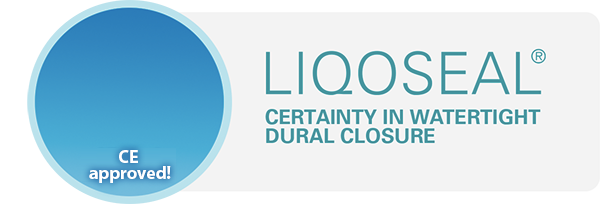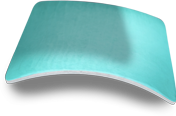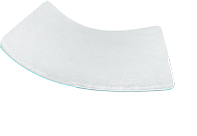Polyganics Strengthens Global Distribution Network with Appointment of Synovis MCA as US-wide Distributor of NEUROCAP®
Groningen, The Netherlands – 10 September 2018 – Polyganics, a privately held medical technology company that develops, manufactures and commercializes bioresorbable medical devices, today announced that it has signed an agreement with Synovis Micro Companies Alliance Inc. (“Synovis MCA”), a subsidiary of Baxter International Inc., to be the exclusive distributor of its nerve capping device, NEUROCAP®, in the US.
Synovis MCA is an experienced distributor of nerve repair devices that enjoys excellent sales records on the strength of its established networks and portfolio. The new agreement with Synovis MCA in the US will cover the entire country, helping to meet the growing distribution demand for NEUROCAP® and improving its availability for patients.
NEUROCAP® is a novel treatment option for end-neuromas, a swelling that occurs at the end of a nerve which develops in response to trauma. The NEUROCAP® device, made from Polyganics’ unique synthetic, transparent polymer, protects the peripheral nerve end, separating it from the environment to prevent further damage and pain. The device is an alternative to surgical procedures that are complex or require material of human or animal origin.
The effectiveness of NEUROCAP® is supported by a strong body of evidence. A multicenter post-market clinical follow-up study is currently underway in both the US and Europe, with patient enrollment successfully completed this summer. The study is designed to evaluate the clinical value of NEUROCAP® in the upper and lower extremities over a 2-year period of patient monitoring.
Michael K Campbell, President of Synovis MCA, commented: “We are committed to providing the latest surgical innovations to our customers, and Polyganics’ NEUROCAP® ideally complements our existing portfolio of peripheral nerve repair products. We look forward to working with Polyganics to enable reliable access to NEUROCAP® across the US and help surgeons provide patients with the best care possible.”
Rudy Mareel, CEO of Polyganics, commented: “The clinically proven NEUROCAP® device provides a unique solution to the pain experienced by patients due to nerve damage. We continue to strengthen and expand the evidence for NEUROCAP® with ongoing clinical studies.” He continued, “The initial interest in the product has been promising, and we are now expanding our NEUROCAP® distribution network in the US to improve efficiency of delivery and consistency of product availability for surgeons and patients. We are pleased to be working with Synovis MCA with their renowned expertise and established sales networks within the sector.”
Polyganics and Synovis MCA are both attending the 73rd ASSH (American Surgery for Surgery of the Hand) Annual Meeting on 13-15 September in Boston, MA, USA.
About NEUROCAP®
Launched in 2016, NEUROCAP® is a novel treatment option for end-neuromas, a swelling that occurs at the end of a nerve which is often very painful. The condition develops in response to trauma to the nerve, either through injury or surgery. The NEUROCAP® device has the unparalleled potential to revolutionize surgeries by protecting the peripheral nerve end, separating it from the environment to prevent further damage and pain. The device is made from a unique synthetic, transparent polymer with proven safety and efficacy. Alternative treatments for peripheral nerve injury require complex surgical procedures or material of human or animal origin. Easy access to NEUROCAP® throughout the USA will help surgeons to provide optimal patient care.
About Polyganics
Polyganics is a medical technology company with multiple versatile polymer platforms. The Company develops, manufactures and commercializes innovative bioresorbable medical devices that facilitate tissue repair and regeneration.
Polyganics’ portfolio includes products developed in-house and in collaboration with leading medical technology companies and academic centers of excellence. In the Peripheral Nerve Repair (PNR) and neurosurgery field, the portfolio includes three marketed products: VIVOSORB® for minimizing unwanted tissue adhesions after surgery; NEUROLAC® for supporting PNR following hand surgery; and NEUROCAP® for the management of symptomatic neuromas. Products in development include a sealant for the dura membrane and a liver sealant patch.
In 2014, Polyganics sold its Ear, Nose & Throat (ENT) surgery business unit (the NASOPORE® product family including HEMOPORE®, SINUPORE® and OTOPORE®) to Stryker, one of the world’s leading medical technology companies. NASOPORE®, a reliable, easy-to-use, nasal wound care dressing made of biodegradable foam, has been used in over 3.5m procedures globally. Polyganics continues to manufacture the NASOPORE® product range for Stryker.
Polyganics is profitable and privately held. The Company is based in Groningen, The Netherlands, a center of biomedical engineering excellence, in an ISO 13485-certified manufacturing facility. The Company’s polymer platform technologies are protected by a broad portfolio of patents and its products have received clearance from the US FDA, CE-approval, and approval from CFDA and other international authorities.
For more information, visit: www.polyganics.com
At Polyganics
Paul Roos, Chief Financial Officer
Romke Ribbels, Director Marketing & Business Development
T: +31 50 588 65 88
E: info@polyganics.com
At Instinctif Partners (ROW):
Dr Christelle Kerouedan / Alex Bannister
T: +44 (0) 20 7457 2020
E: polyganics@instinctif.com




